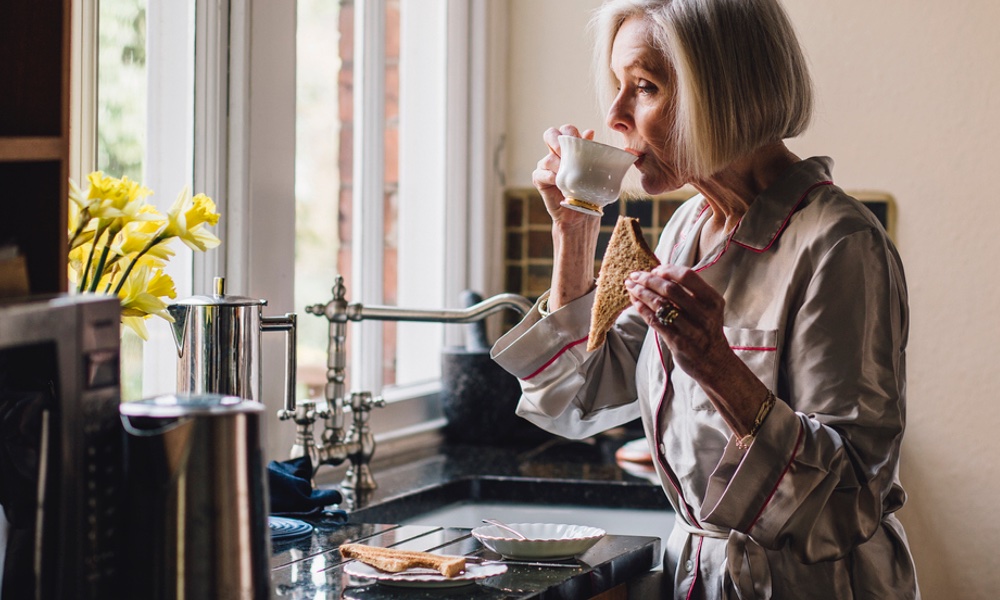We know that what we eat affects our heart’s health, but eating alone can also put our hearts at risk, according to a recent study. If you’re an older woman who regularly eats alone, the researchers found that you are at increased risk of heart problems.
This isn’t the first time a connection between solo eating and health was made. Prior studies have shown that eating alone, regardless of gender, is associated with elevated blood pressure and abdominal obesity. One reason is because when we eat by ourselves, we tend to consume our food faster which leads to cardiovascular problems, including an increase in:
- body mass index (BMI)
- waist circumference
- blood pressure
- blood lipid levels.
Using data from the 2016 Korea National Health and Nutrition Examination Survey, the study looked at the health records of almost 600 women who were 65 years and older and compared the heart health of women eating alone with those eating in the company of others. The research team discovered two notable differences: First, older women who ate alone tended to consume meals that were deficient as the result of their lower intakes of energy (calories), carbohydrates, dietary fiber, sodium and potassium. Second, older women eating alone were over two-and-a-half times more likely to experience angina, chest pain caused by the reduction of blood flow to the heart and a symptom of coronary artery disease.Older women who ate alone tended to have lower intakes of energy (calories), carbohydrates, dietary fiber, sodium and potassium than women who shared meals with someone else.
Add this to the eating equation: post-menopausal women have lower levels of estrogen, a hormone that protects the heart which adds to their cardiovascular risk. Here’s another Catch-22. Eating alone points to other lifestyle issues that can also affect heart health.
“This study shows that older women who eat alone are more likely to have symptomatic heart disease,” Stephanie Faubion, the National Academy of Medical Sciences (NAMS) medical director, explained in a statement. “They are also more likely to be widowed and to have lower incomes and poorer nutritional intakes. These results are not surprising given that lower socioeconomic status and social isolation contribute to lower quality of life, greater rates of depression, and poorer health.”
What’s the answer? Faubion suggests that, “Given that women live longer than men, finding ways for older women who are socially isolated to engage and create meaningful social ties may not only improve their nutrition but also their overall health while simultaneously reducing healthcare costs.”
Now that COVID restrictions are easing, senior centers are re-opening in neighborhoods across our country. Many offer at least one daily communal low-cost or free meal. If you’ve been regularly eating alone, you might want to consider locating a senior center near you and sharing a meal with your neighbors. To find a center near you, go to the Senior Center Directory and click on your state in the “Locate a Senior Center” drop-down menu.
This study is published in the journal, Menopause.





